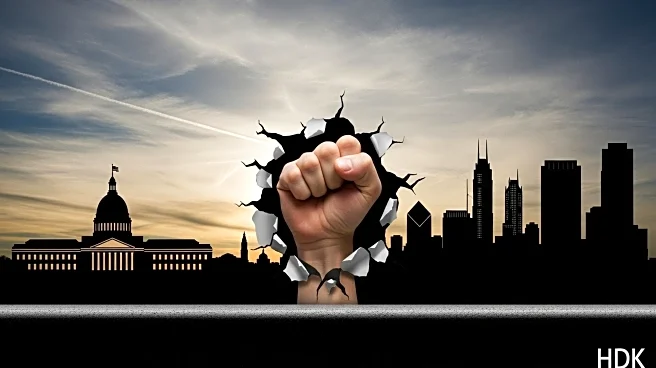What's Happening?
On September 6, thousands of protesters gathered in Washington, DC, and Chicago, Illinois, to oppose the Trump administration's immigration policies and the deployment of the National Guard. The 'We Are All DC' March, organized by Free DC and the American Civil Liberties Union, marked one of the first major protests since President Trump sent federal troops to the capital. Protesters demanded an end to what they termed the 'occupation' of Washington, DC, where over 2,000 National Guard troops have been deployed from other states. The deployment has faced legal challenges, including a lawsuit filed by DC's Attorney General.
Why It's Important?
The protests highlight ongoing tensions between federal authorities and local communities regarding immigration enforcement and military presence in civilian areas. The deployment of National Guard troops in Washington, DC, has raised concerns about civil liberties and the militarization of public spaces. These demonstrations reflect broader national debates on immigration policy and federal intervention in local governance. The legal and public pushback against these measures could influence future policy decisions and impact the relationship between federal and local authorities.
What's Next?
The legal challenge against the National Guard deployment in Washington, DC, may lead to further court proceedings, potentially affecting the duration and scope of military presence in the city. Continued protests could pressure lawmakers to reconsider current immigration policies and the use of federal troops in civilian areas. Stakeholders, including civil rights organizations and local governments, are likely to remain active in advocating for policy changes and monitoring federal actions.










